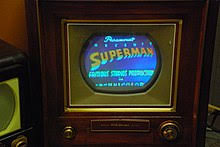We didn’t always have television, as I’m sure you know. Some of us remember the day that big box was carried into our living rooms and the screen lit up with the faces of people in “black and white.”
And so it was on November 24, 1963, that a black and white TV console in pride of place in my family’s living room broadcast a live murder. “They shot Oswald!” my father yelled, leaping from his easy chair. My mother rushed in from the kitchen. My little sister and I stared in horror, frightened by our parents’ faces as much as what the TV showed. At 12:20 p.m., Lee Harvey Oswald, the assassin of President Kennedy, was shot in the basement of Dallas Police Headquarters by nightclub owner Jack Ruby. We had been glued to the screen for days, watching images from Dallas. It was a national trauma shared by everyone we knew, and now another was added. For the first time, I saw a scene of horror repeated day after day.
On May 4, 1970, at 12:24 p.m., four students at Kent State University were shot and killed by the National Guard during a protest of the Vietnam War. I was at work that Monday and watched the TV coverage that evening. More national trauma on repeat.
On September 11, 2001, we had color TVs on the morning America was attacked by 19 terrorists. Some watched morning news shows at 8:46 a.m. as, in real time, terrorists flew two planes into the World Trade Center in New York City. Once again, the scene repeated over and over each day. It was hard to avoid and hard to look away.
Just this past Wednesday, January 6, 2021, at 2:11 p.m., rioters broke into the U.S. Capitol to stop the certification of the election of Joe Biden as President. We watched this one live as well, having seen the buildup over the preceding hours. And again, in the ensuing days, we are confronted with the images of an angry mob resulting in four deaths.
Watching these events repeatedly always makes me anxious, but it’s hard, at first, to tear myself away. To turn off the TV. I watch to convince myself that yes, this is real, and to look for something to change, to make it better.
But that never happens right away, in real time, on TV. No, the hard work that makes it all better is taking place even now, off screen, in hearts and minds and actions we cannot see. The scene of harmony I long for would not be good for TV. It would lack drama. But that, too, is history – the change-making, justice-rising, love-sharing that is the reason we survive. Would anyone watch it, over and over, on a repeating loop? If we could, it might balance out the trauma.
May it be so.
